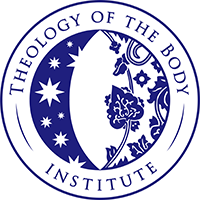

Those Distant Stars: God & Same-Sex Desires
Those Distant Stars: God & Same-Sex Desires

I awoke in the dark. It took a moment to get my bearings. I was in a sleeping bag, lying on the floor of a tent. It was cold, cold enough that I second-guessed the urgency of why I’d awakened. However, to paraphrase John Muir, nature was calling and I needed to go. I wiggled out of my sleeping bag and into the crisp mountain air. What I saw in the sky took my breath away.
Allow me to explain. I’m a suburban woman, born and raised. As kids, my siblings and I were lucky to spot the Big Dipper or Orion’s Belt amid the residual glow cast by the Best Buy parking lot floodlights. My parents bought me a telescope. Astronomy was the latest iteration of my dream to be a co-pilot on the Millennium Falcon (sorry Chewbacca). I never had the patience to stare for long into the telescope’s tiny eye-hole, though I have hope the neighborhood garage sale gave it’s career a promising turn-around.
That said, the night in the Idaho wilderness was new for me. It was my first backpacking trip. Did I mention I’m a Midwestern suburban woman? We had ascended over 2,000 vertical feet, miles and mountains from the nearest city. When I stumbled out of my tent that night, I saw a sky on fire. From peak to peak, the blackness of the sky was ablaze with inestimable pinpricks of light. It awakened a profound desire to encounter beauty in remote corners of nature, a desire that hasn’t left me.
Like anyone, many desires have awoken in me over the years. The childhood desire to explore space. The desire for friendship. The desire to kiss my female best friend.
Define Your Terms
The term “desire” originates in Latin. Desiderare is translated as “long for, expect” and even more anciently as “await what the stars will bring.” Another translator suggests an etymological origin closer to “stretch” or “extend.” Who among us has not felt the stretching longing of desire?
When it comes to homoerotic feelings, “attraction” — not desire — has emerged as the lingua franca across Christian denominational lines. “Attract” comes from the past participle of the Latin word attrahere, meaning “to draw” or “to pull.” It’s no wonder that the word became associated with magnets in the 17th century.
The distinction between “attraction” and “desire” can seem like mere semantics, but it represents a philosophical difference impacting both personal perception and pastoral approaches. It comes down to this: What can be done with attraction? What can be done with desire?
Attraction & Resistance
When attraction pulls me to something in line with human flourishing, it can be a wonderful gift. When I’m attracted to something not in line with my flourishing, what is there to do? Attraction — with it’s external pull — can only be resisted. It happens from the outside. There is not much I can do internally besides cut off, avoid, repress, or turn away.
Lust, of course, is a sin and a real possibility for anyone, regardless of sexual orientation. But it’s only one dimension of a complex experience. Sexual or romantic desire is bound up with longings for companionship, acceptance, and affirmation of identity. Further, homoerotic feelings often lead to bigger questions. Who am I? What does this mean for my life? How will I be received?
With “attraction,” my energies are directed towards active resistance of these feelings. Ministry guidance would be similar: self-control and managed boundaries. This is solid advice! After all, “chastity includes an apprenticeship in self-mastery” (CCC 2339). But when my only counsel is “no,” it runs the risk of repression, rather than authentic freedom.
Desire’s Redirection
In Man and Woman He Created Them, St. John Paul II honestly confronts the sexual connotations of the word “desire.” He recognizes the temptations of concupiscence to view others as objects for personal satisfaction. He also challenges his hearers to consider a broader understanding, in which the desire of eros “represents the inner power” driving us “toward all that is good, true, and beautiful” (TOB 2.47.1).
Again, who among us has not felt the stretching longing of desire? And who among us has not felt the gap between our present moment and its fulfillment? That night in the mountains, the stars were light years away. How easy it is to become disoriented in the spiritual gap! When my desires for companionship, acceptance, and affirmation from women develops sexual overtones, they are now out of order. However, my energies need not be dedicated to mere resistance. My desires can be redirected and transformed.
“The call to what is true good, and beautiful means at the same time, in the ethos of redemption … the possibility and the necessity of transforming what has been weighed down by the concupiscence of the flesh.” (TOB 2.47.5)
When romantic desire for the same-sex desires meet the spousal meaning of the body, there is tension. Yet the graces of Christ’s redemption means it is possible for me not to be defeated by what is out of order. True virtue cannot be achieved by resistance alone, but through active pursuit of the Fulfillment of All Desire. The goodness, truth, and beauty our hearts strain towards has a final destination. “The desire for God is written in the human heart, because man is created by God and for God … only in God will he find the truth and happiness he never stops searching for” (CCC 27).
Anna Carter is the co-founder of Eden Invitation, an evangelistic outreach to millennial Catholics offering Christ-centered community and resources on sexual identity and orientation.

Watch Anna Carter’s presentation at the historic
2020 Theology of the Body Virtual Conference
by purchasing a Premium Pass!
This pass will get you ongoing access to more than 80 presentations from top Theology of the Body speakers and artists (including TOBI’s Christopher West, Bill Donaghy, Jen Settle, Jason Clark and Mike Mangione), as well as access to nearly two dozen Q&As with select speakers, God, Sex & the Meaning of Life — a 10-part TOB introductory mini-course from Christopher West, and more.


